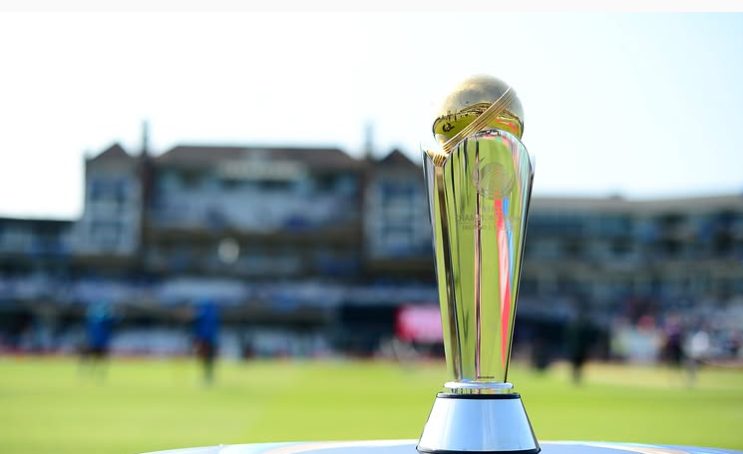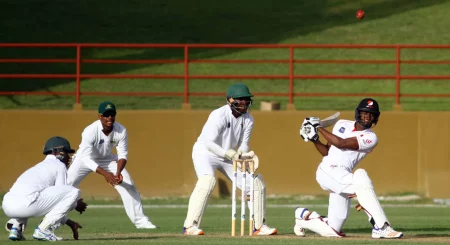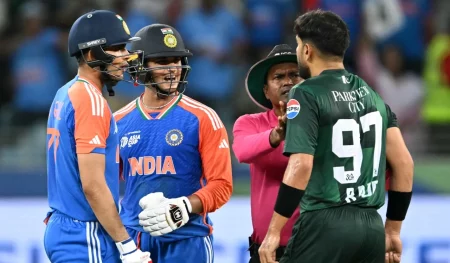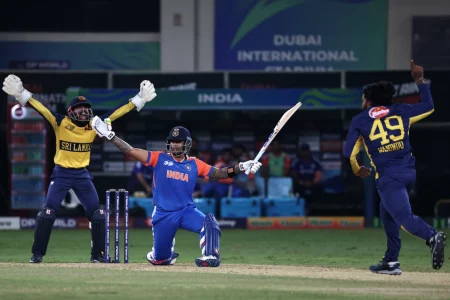After a prolonged impasse, a solution has finally been reached regarding where the Champions Trophy will be held. The tournament will be played in Pakistan, except for the matches involving India, which will be staged at a neutral venue to be announced in due course. The same will be followed for the tournaments in India, where Pakistan’s matches will be arranged at a second venue. The hosting rights will remain with the originally designated hosts.
The decision came after multiple ICC board members’ meetings, and during each of them, Pakistan stuck to their stance of only accepting the hybrid model if India did the same in future ICC events. Reportedly, the ICC board members voted in favor of this decision in one of the recent board meetings. Under the agreement, even the knockout games including the semi-finals and finals will be shifted to neutral venues, in case any of Pakistan and India reach that stage.
Besides the Champions Trophy, the agreement will extend to the 2025 women’s ODI World Cup, set to be hosted by India exclusively, and the 2026 men’s T20 World Cup, which will be co-hosted by India and Sri Lanka.
The decision on a neutral venue will be made by the host but must be approved by the ICC. The Pakistan Cricket Board (PCB) will have 24 hours after the acceptance of the agreement to announce their proposed neutral venue to the global body. There is a strong possibility of the UAE getting India’s matches, with Sri Lanka being the second choice. In any case, the arrangements will have to be made by the PCB.
The schedule for the tournament, which ideally should have been announced last month, will be released after the ICC approves the PCB’s proposed venue. The tournament was originally penciled in to run from February 19 to March 9, which means the tournament is less than 60 days away. The ICC usually announces the schedules 100 days before the start of a tournament but this deadlock caused a delay that lasted more than a month.
It is understood that the governments of both India and Pakistan have also approved the decision.
While shifting crowd-puller matches like India vs Pakistan games to a neutral venue may seem like a dampener, the rivalry between both nations has always been enough to fill the stadiums to capacity, regardless of the venue. During the T20 World Cup 2022, more than 90,000 people turned up to watch an India-Pakistan clash at the MCG, a stadium thousands of miles away from both countries.
Both nations have not played a single bilateral game since Pakistan last traveled to India for a white-ball series. During the negotiations, one of the conditions set forth by the PCB was the arrangement of a triangular or quadrangular series between India, Pakistan, and two other nations (most probably from Asia). Another such proposal was rejected in the past when the then-chair of the PCB, Ramiz Raja came up with the idea to revive relations between India and Pakistan. However, this time the ICC has decided not to object to any such a four-nation tournament, though the tournament will have to follow the same hybrid model as well.
The decision has successfully broken the months-long impasse between India and Pakistan. But this decision is far from a permanent solution. Once this FTP cycle ends, both nations and the ICC will need to come together to think of a way ahead once again. Even if they decide to persist with the same model in the coming ICC events cycles too, the lack of bilaterals between both sides will keep on reminding the cricket world of the strained relations between both sides. A long-term solution can only be reached when all sides decide to separate sports from politics.



